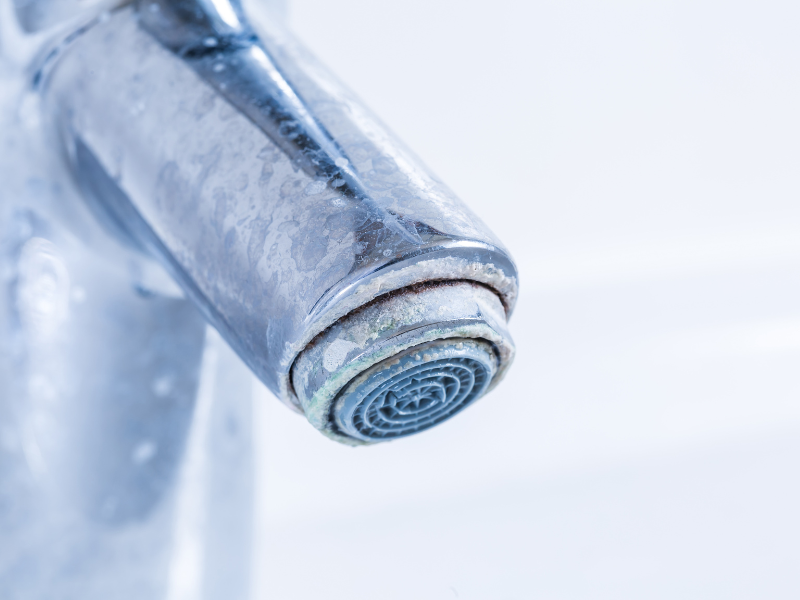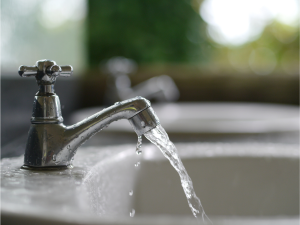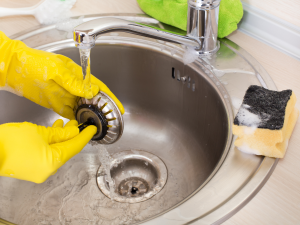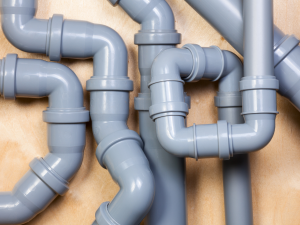Slow-draining pipes and clogs are a frustratingly common occurrence that has led many companies to create different drain cleaners and other tools. However, the cause of the slow draining can be one of many, since a lot of different items can end up washed down or flushed into your pipes. Scale is one such common cause of clogs.
Much like the other causes of clogs, scale buildups can be quite dangerous for your plumbing and your home if left alone for long enough. They can cause pressure to build inside the plumbing until your water entirely stops draining. Fortunately, descaling the pipes in your home is the best option.
Today’s blog will go over some of the reasons why you should regularly get your pipes descaled. We’ve also detailed what scale is, so if you suspect that this is why you’re experiencing slowed water or a hard-to-reach clog, just contact our team at Clover Contracting!
What Is Scale?
When considering the things that go into your pipes, food waste is one of the most impactful. While dirt and soap often do go down the kitchen and bathroom sinks, cleaning the dishes is a necessary part that sends oil and grease into the plumbing. When combined with a few other factors, your pipes soon start developing scale.
At its core, pipe scaling is a simple mixture of grease, minerals, and the lingering rust from the pipes themselves. These materials combine with hard water deposits to form a buildup inside your plumbing. Hard water already has quite a few minerals in it, and its higher concentrations of calcium and magnesium can add their deposits to the scale buildup.
The result is a sudden decrease in water flow due to partial clogs, a fully clogged pipe, or even corrosion. If the scale goes unnoticed for a long time and is allowed to grow, your pipes can start to disconnect from each other and even crack open from the pressure.
What Is Pipe Descaling and How Does It Work?
Simply put, the process of descaling your water pipes is just removing the scale buildup. While this might be concerning at first, pipe descaling is actually used to help reduce how often said scale forms. Depending on the material of the pipes you have and how bad the scaling is, the process can be carried out in one of two ways. But first, our technician will do a camera inspection to check how bad the issue is.
If the scaling is rather bad or if it formed a complete clog, the technician will then go ahead with hydro jetting. The process is surprisingly simple but quite effective. Typically used for severe clogs and clearing out tree roots before pipe repairs, hydro jetting involves a pressure washer – specifically referred to as a hydro-jet – to blast water into the pipes. The high water pressure easily clears away the scale buildup and even scrubs the pipes clean.
On the other hand, if there’s not a lot of buildup in the pipes, the technician might instead suggest and use chemical descaling. The chemical used is often a special acidic solution that eats away and loosens the buildup while still being a bit safer for the pipes. Chemical descaling will also be used if hydro jetting risks damage during the process of descaling your drainage pipes.
Why Is Descaling Your Pipes Important?
As it is with many parts of plumbing repair and installations, there are many different ways to provide a solution to a single problem. Some of them can be quite invasive, requiring parts of your walls or lawn to be excavated to fix something even as a clogged pipe.
Fortunately, descaling your pipes is an entirely noninvasive process and avoids any of these additional costs and labor.
Descaling is highly important for quite a few reasons. Scaling can often bond to other waste and non-biodegradable materials that pass through the pipe, making the clog even larger. While this is mostly due to the presence of grease in the scale, the other components can decrease its severity.
The Benefits of Pipe Descaling
Some homes in Virginia have cast iron pipes integrated into their plumbing systems. Though not exactly the most common option, cast iron pipes are considered the most durable option available. However, these kinds of pipes are also the most vulnerable to scale and its effects. This makes descaling your drain pipes quite beneficial, especially for cast iron plumbing.
Cast iron pipes can slowly develop far more rust over time than other kinds of metal pipes. The pipes themselves are still mainly iron and the constant flow of hard water through them causes them to rust faster. Combined with the calcium, magnesium, and other minerals that cause scaling, the uneven nature causes the pipes to clog faster.
Yet, besides the benefits cast iron pipes gain from the descaling process, the scale buildup is still at its core a clog. The descaling process already acts as a cleaning process for a clog and, additionally, can let you and the technician know of any small cracks caused by roots breaking in. The cleaning process also helps remove rust and other forms of buildup from the pipes, ensuring that they last longer.
To make sure that descaling works as efficiently as possible, many homeowners and plumbing companies alike suggest looking into – and purchasing – a water softener. The system removes many if not all of the minerals that can lead to scale deposits, dramatically reducing the chance that it forms again in the future.
Takeaway
Scale is a troubling problem that many homeowners in Virginia have to deal with on a regular basis. Scale is primarily formed due to hard water and excess minerals in the pipes, the only way to effectively get rid of these deposits is to call a technician to start the descaling procedure.
Though it may just seem like a simple cleaning process to many people, descaling your pipes has many more benefits than expected. The process removes both scale deposits as well as any lingering rust and small roots. Additionally, the process allows the technician to catch and fix any small problems from worsening.
If you suspect your plumbing has scale issues, all you need to do is call our team at Clover Contracting for help!




